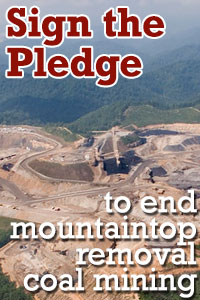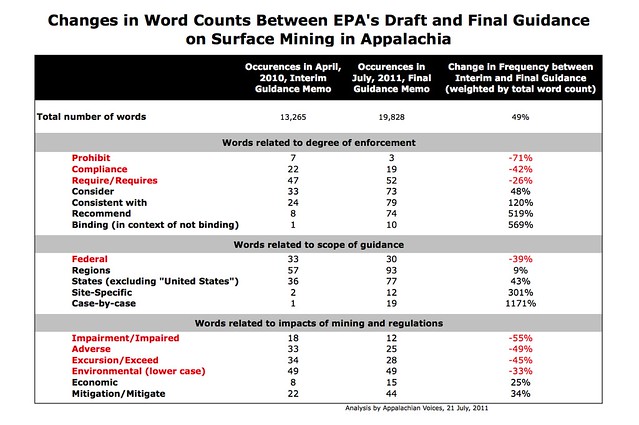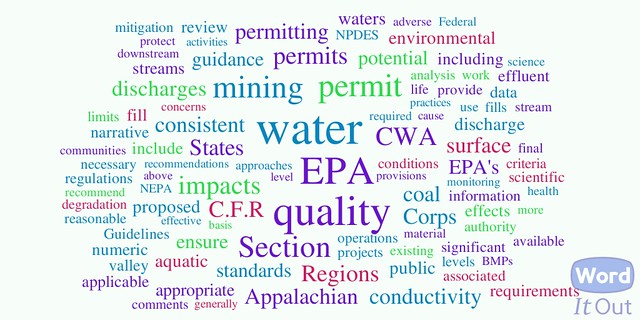News
EPA Guidance Will Not Protect Appalachian Communities
Thursday, July 21st, 2011
After hearing that EPA Would Rely on the Best Science to Protect People from Mountaintop Removal Mining Waste, This Guidance is a Bitter Disappointment
 Today, the Environmental Protection Agency released the final draft of their long-awaited surface coal mining guidance.
Today, the Environmental Protection Agency released the final draft of their long-awaited surface coal mining guidance.
In light of new information showing a link between mountaintop removal and sickness, birth defects, and cancer clusters, this guidance falls disappointingly short of the “comprehensive” steps necessary to protect Appalachia and its people from what EPA themselves call “permanent” and “irreversible damage” from strip mines. We really, really need an EPA to protect us from a dangerous, dishonest, and often two-faced coal industry. This particular action by the EPA will not even come close to protecting citizens from the actions of these companies, or the most destructive mining practices in America.
We should take a moment to applaud EPA for taking a step in the right direction. Taking action to protect people from mountaintop removal is the right thing to do. They are certainly under seemingly unprecedented pressure from the coal lobby and their Congressional allies. For giving their time and attention to protecting citizens from mountaintop removal, we applaud and thank them.
However, there were several things EPA could have done to properly protect the environment and public health.
Firstly, this is just a guidance, which is a weak regulatory device for pursuing the regulation of deadly and dangerous practices like strip-mining. Ideally, the Administration would have fought for strong permanent protections in the form of a law, such as the bipartisan Clean Water Protection Act (HR 1375), which has over 100 cosponsors in the House, and would keep toxic mining waste out of our streams. At the very least, EPA should have gone through a formal rule-making process.
So not only is there little that is enforceable about this guidance, but in the final draft EPA actually backslides, and presents something that is even weaker than previous drafts. Of particular concern is that fact they are permitting valleyfills at all. Even worse, they went from “sequencing” valleyfills (allowing one at a time) under strict review, to allowing several at a time on particular mine sites.
My colleague Dr. Matt Wasson will have much more on this later, but its interesting to look at which words were changed in the final guidance compared to the interim version released last year.
There’s not a lot to like in that chart, but if you’re starting to worry that we’re moving backward rather than forward on mountaintop removal it might be reassuring to take a look at the word cloud from the final guidance memo released today.
Despite it’s flaws and the recent backsliding, the EPA’s guidance is a step forward in protecting Appalachian communities, streams and mountains. It’s just not a very big step, nor is it permanent. So we’ve got more work to do.











